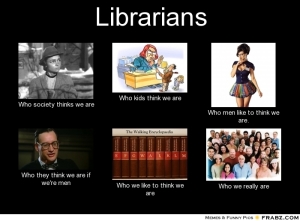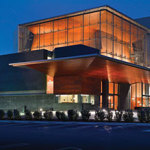Until I started taking LIS courses, my knowledge of music libraries was based exclusively on my experience with the UCLA Music Library as a student. In my mind, music libraries revolved around the study of music, not the performance of it. I never saw them as having a purpose beyond supplying professors and students with materials to help them better understand various musical works.
But now, thanks to Dr. Patrick Lo’s 2013 article A Conversation with Robert Sutherland, Chief Librarian at the Metropolitan Opera Library, I know more. In this interview, Sutherland discusses his chief duty: providing the musicians with the scores they need for performance. This is no simple task. Many opera scores exist in multiple editions and many singers need certain passages of music to be transposed. For each opera production, Sutherland needs to confer with the conductor, the stage director, and the singers to decide which edition of the score (or amalgam of editions) and which keys will be used. Sometimes those decisions can be altered at the last possible moment for various reasons.
Sutherland and his fellow librarians also proof-read the scores intensively to insure that they’re free of errors, preserve the markings written in the scores by various conductors, and ensure that when those conductors perform, those markings are copied onto the parts for all the orchestra members. They also have the job of repairing damaged sheet music (a necessity when a library has materials dating all the way back to 1883) or replacing damaged material that’s beyond repair. Although Sutherland loves his job and describes it as “like winning the lottery (Lo & Sutherland, 2013, p. 90), he also describes it “relentless” (Lo & Sutherland, 2013, p. 86) – the librarians need to be constantly busy to ensure the best quality performances. He also claims that his background as an orchestra musician helped prepare him for his current career, because it helps him view each score from the performers’ point of view. One of the keys to his job, he says, is to know which scores are the best for performing, not just reading or displaying.
Of course the study of music is essential to all of this. Sutherland’s duties sometimes include such scholarly business as analyzing a composer’s handwriting to determine the exact meaning of the score’s markings. But it’s never study just for the sake of study. The ultimate goal of everything he does is excellence on the opera stage.
Even though the Met is a performance library, not an academic library, I’m sure that academic music librarians have similar responsibilities. Colleges offer music performances, too. UCLA’s Herb Alpert School of Music offers plenty of concerts every year, as well as the occasional opera and Broadway-style musical. Not only that, most music students are actively studying to be musicians (it’s all too easy to forget this sometimes, but people like me who only study Music History are the exception, not the rule). Who supplies the materials that they need to give the best performances possible? The library! Academic music librarianship may not be identical to Sutherland’s job, but I doubt it’s drastically different either.
Thanks to this interview, I know now that music libraries do more than just teach people about music. They also play an essential role in helping musicians bring music to life.
References
Lo, P. & Sutherland, R. (2013). A conversation with Robert Sutherland, chief librarian at the Metropolitan Opera library. Fontes Artis Musicae, 60(2), 76-91. Retrieved from eb.b.ebscohost.com.libaccess.sjlibrary.org/ehost/detail/detail?vid=3&sid=356cd544-71ca-40ce-9afd-9050d454290a%40sessionmgr111&hid=103&bdata=JnNpdGU9ZWhvc3QtbGl2ZQ%3d%3d#db=llf&AN=89990716





